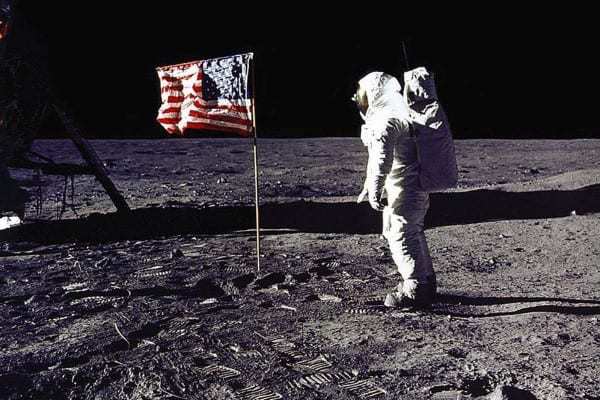The politics surrounding the moon landing have always fascinated historians. From a more cynical point of view, it is one of the few times in US history where the president said the US would do something, and it actually happened. From a technology and science point of view, the fact that NASA got a man to walk on the moon less than a decade after being prompted to do so by John F. Kennedy is nothing short of miraculous.
On May 25, 1961, President John F. Kennedy stood in front of a joint session of Congress and announced his goal of reaching the moon by the end of the 1960s.
“I believe that this nation should commit itself to achieving the goal, before this decade is out, of landing a man on the moon and returning him safely to the Earth. No single space project in this period will be more impressive to mankind, or more important for the long-range exploration of space; and none will be so difficult or expensive to accomplish.”

After talking about the money for four paragraphs, JFK gives what is perhaps the most poignant sentence of the entire speech: “If we are to go only half way, or reduce our sights in the face of difficulty, in my judgment it would be better not to go at all.”
The Space Race was something both the United States and the Soviet Union took very seriously during the Cold War. Both countries were determined to make themselves look better than the other, therefore proving to the world that their economic and societal structures were better and more sustainable (communism vs capitalism).
By 1961, the Americans had been outclassed by the Soviets in the Space Race. On April 12, 1961, the Soviets had sent the first man into space on the Vostok 1, beating the Americans by almost a month (Alan Shepherd flew into space on May 5).
It was this, that forced Kennedy to make his speech before Congress. His speech linked the necessity for a national space program with the struggle between democracy and communism. “Finally, if we are to win the battle that is now going on around the world between freedom and tyranny, the dramatic achievements in space which occurred in recent weeks should have made clear to us all, as did the Sputnik in 1957, the impact of this adventure on the minds of men everywhere, who are attempting to make a determination of which road they should take.”

On July 20, 1969, just eight years after President Kennedy issued his challenge, the United States became the first country to put a man on the moon. It would be watched by an estimated 600 million people around the world, the largest audience ever at the time. It held that record until 1981 when 750 million watched the Prince of Wales marry soon-to-be Princess Diana.
Kennedy would not live to see his challenge met, however. He was assassinated on November 22, 1963 while in a motorcade in Dallas, Texas. He remains one of the most popular presidents of all time.

